Professional tips for overwintering vegetables outdoors – for successful winter crops
Hardy vegetables can provide harvests throughout winter - here is how you can help maintain these crops throughout the cold
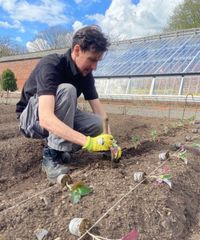
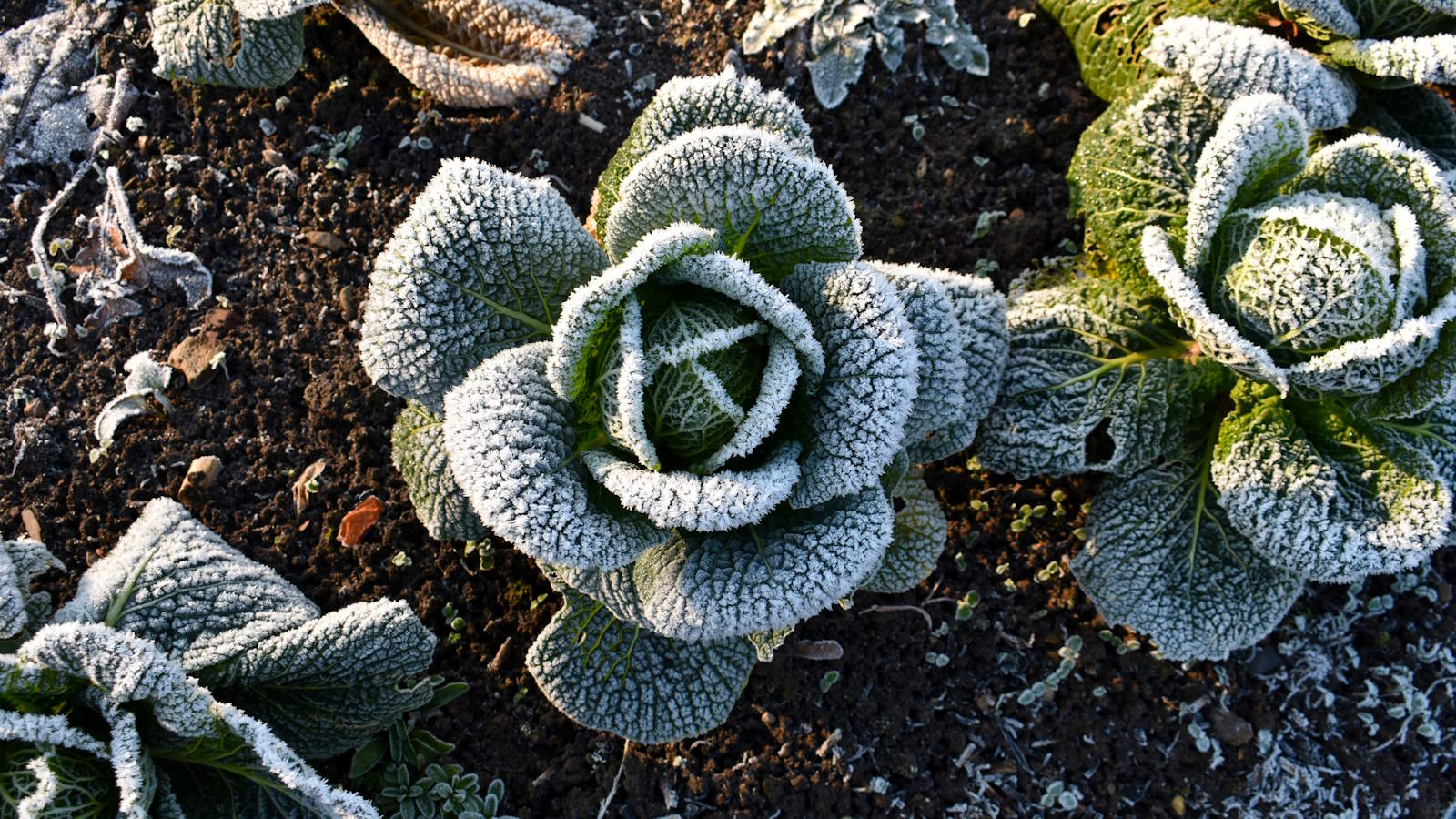
Design expertise in your inbox – from inspiring decorating ideas and beautiful celebrity homes to practical gardening advice and shopping round-ups.
You are now subscribed
Your newsletter sign-up was successful
Want to add more newsletters?

Twice a week
Homes&Gardens
The ultimate interior design resource from the world's leading experts - discover inspiring decorating ideas, color scheming know-how, garden inspiration and shopping expertise.

Once a week
In The Loop from Next In Design
Members of the Next in Design Circle will receive In the Loop, our weekly email filled with trade news, names to know and spotlight moments. Together we’re building a brighter design future.

Twice a week
Cucina
Whether you’re passionate about hosting exquisite dinners, experimenting with culinary trends, or perfecting your kitchen's design with timeless elegance and innovative functionality, this newsletter is here to inspire
The joys of growing and harvesting homegrown vegetables can be a year-round experience, as there are lots of crops that provide rich pickings even through the winter. By growing cold hardy vegetables you can be harvesting throughout December and January.
It is important to be adaptable if you want to keep a vegetable garden thriving through winter, as your gardening practices must change season-to-season. With the right care, you can guarantee yourself great harvests even when there is frost and snow on the ground.
When I was working as a professional kitchen gardener, I was growing and harvesting a range of vegetables 12 months of the year for chefs. It involved picking and delivering fresh harvests multiple times a week through the depths of winter, and I had to adapt the methods of growing to make sure the crops kept coming as required.
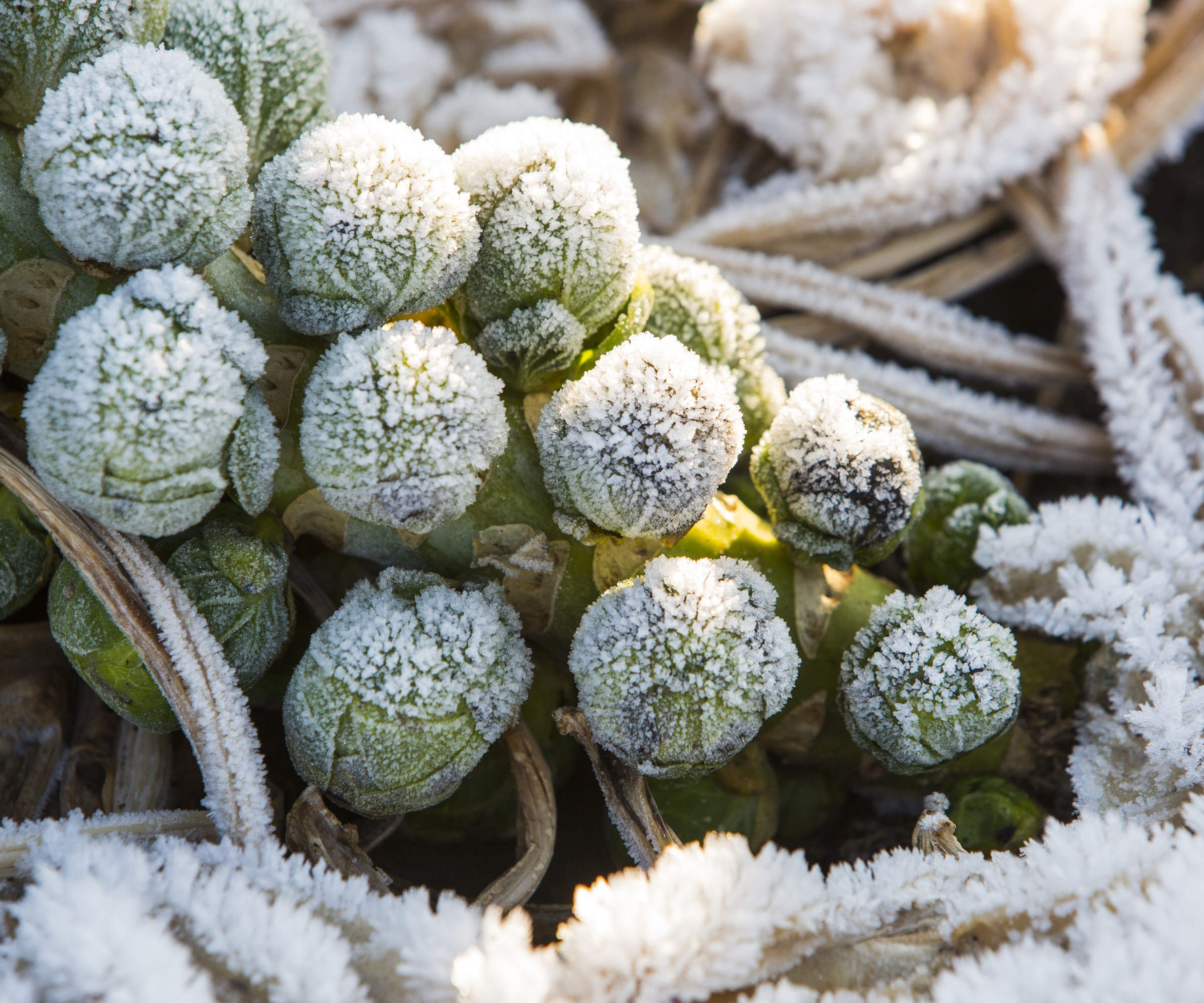
Brussels sprouts can be picked all winter long
What does overwintering vegetables mean?
Overwintering is the process of keeping plants alive over the cold winter months. If you have grown crops in pots as part of a vegetable container garden, then plants can be moved to a more protected position and you can even overwinter plants indoors.
However, there are lots of hardy vegetables that can survive the winter outdoors in the kitchen garden.
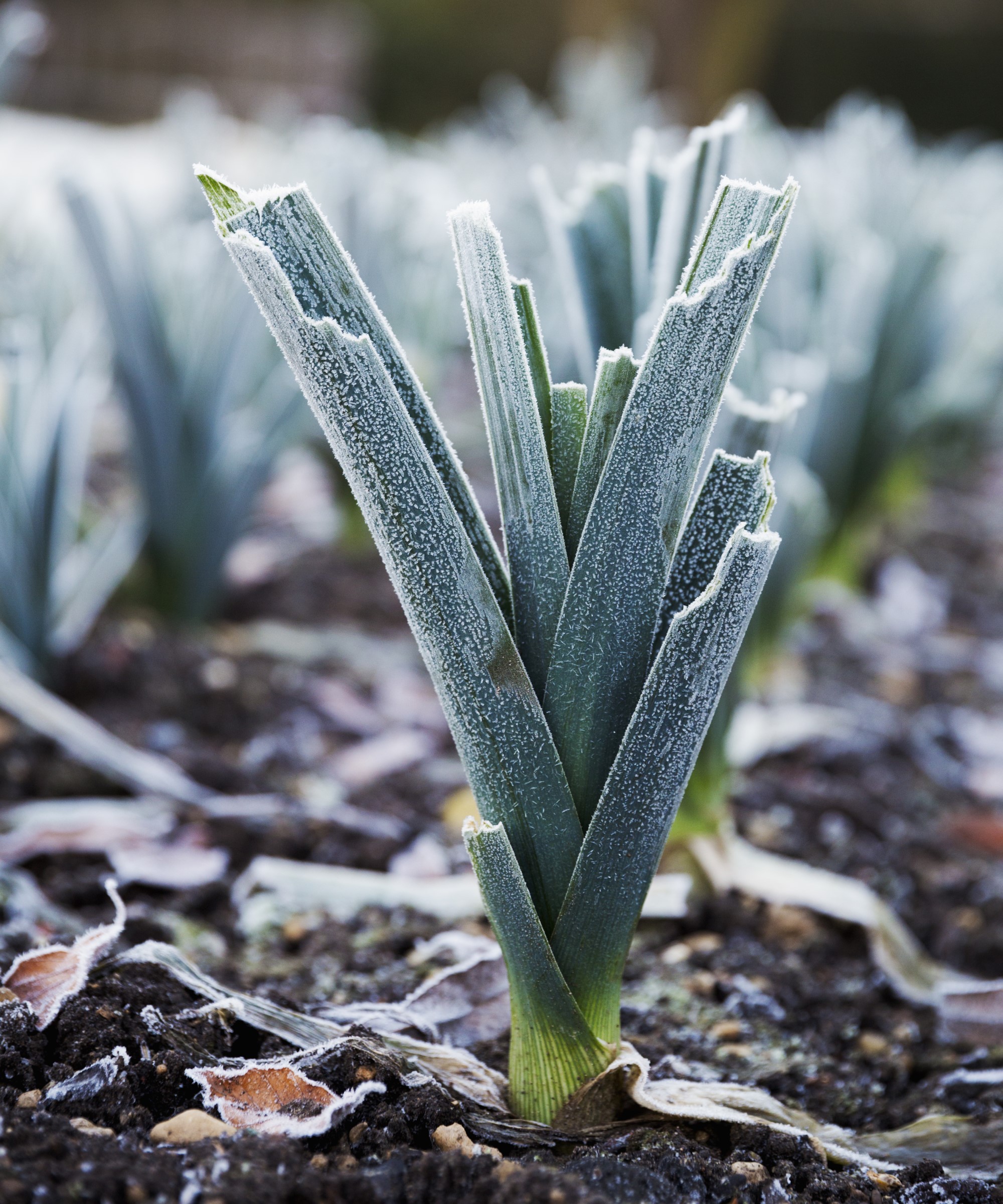
Hardy types of leeks can remain outdoors until spring
Which vegetables can overwinter?
There are a lot of cold hardy vegetables to overwinter outdoors successfully. This includes many types of brassicas, including cabbages, kales, and Brussels sprouts, as well as Swiss chard, leeks, Jerusalem artichoke, and many more.
Even the likes of garlic, onions, and fava beans can happily overwinter - you plant them in fall and they will spend the winter outside ready to grow again in spring.
Design expertise in your inbox – from inspiring decorating ideas and beautiful celebrity homes to practical gardening advice and shopping round-ups.
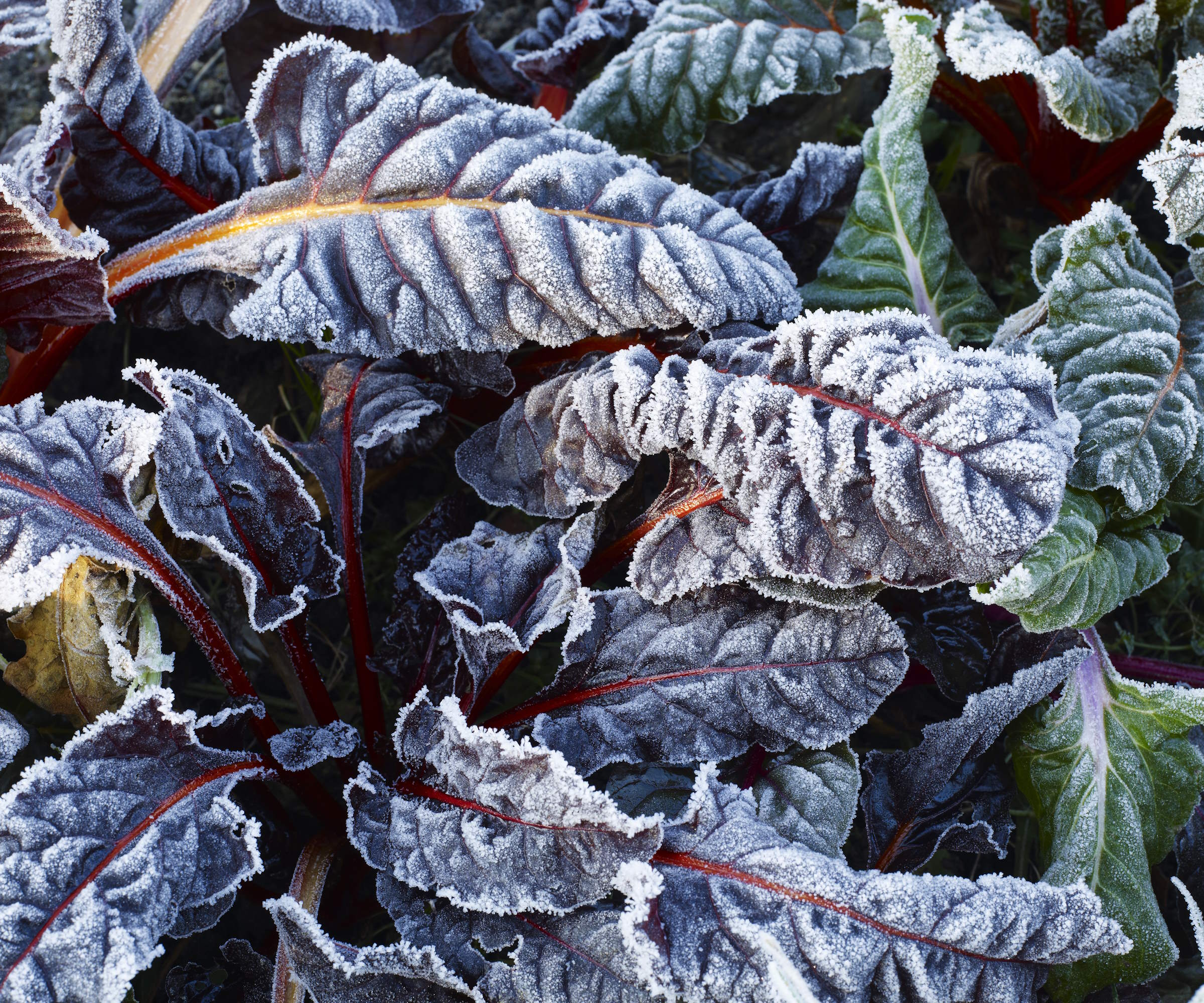
Chard is winter hardy down to 15°F
Tips for overwintering vegetables
When planning or starting a vegetable garden, try to think year-round and plan for harvesting throughout December and into the new year.
There are some key areas to consider to successfully overwinter vegetables and we take a closer look at seven of these to help keep crops happy, healthy, and providing a harvest through the winter months.
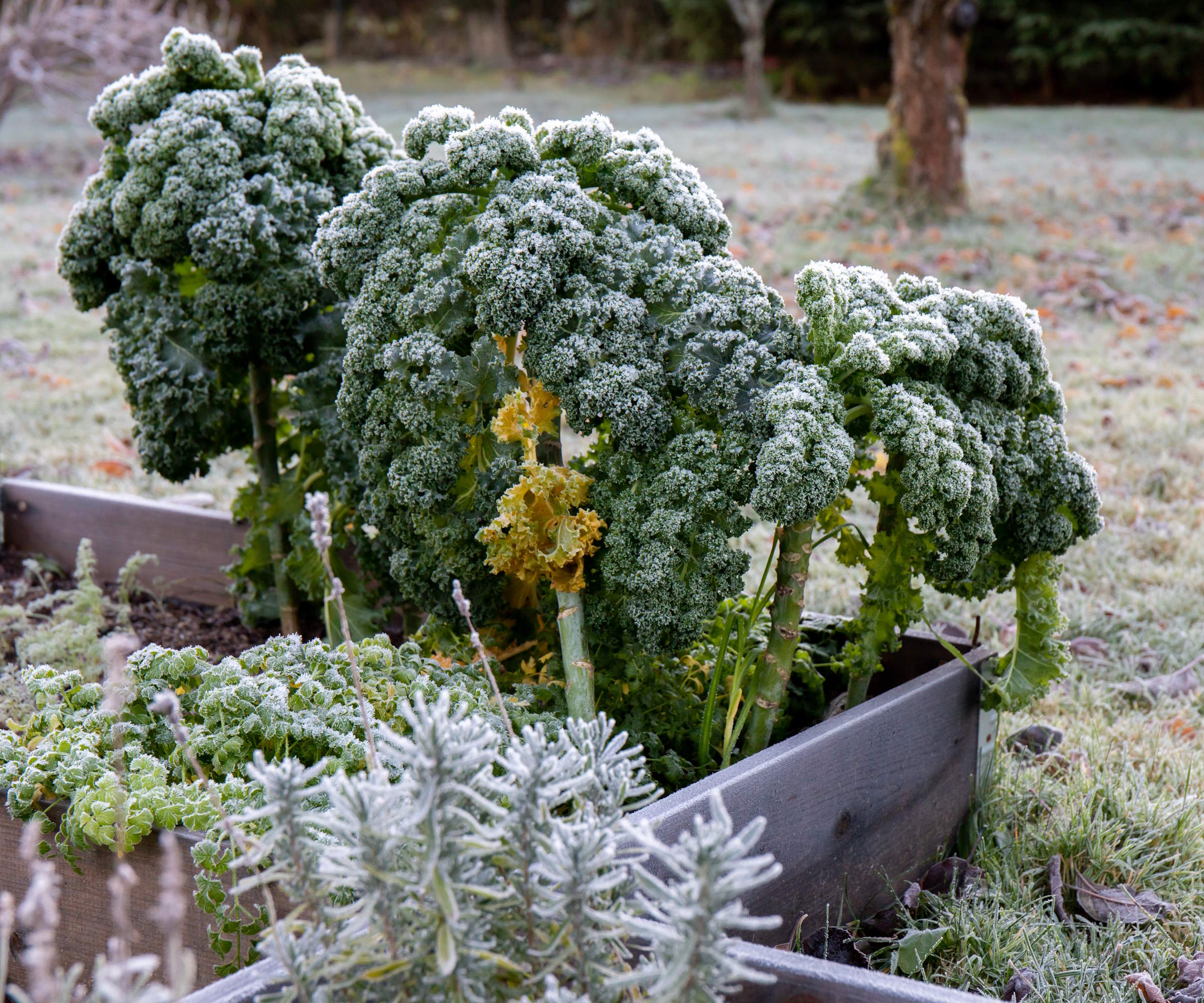
Let plants defrost before picking wherever possible
1. Choose the right plants
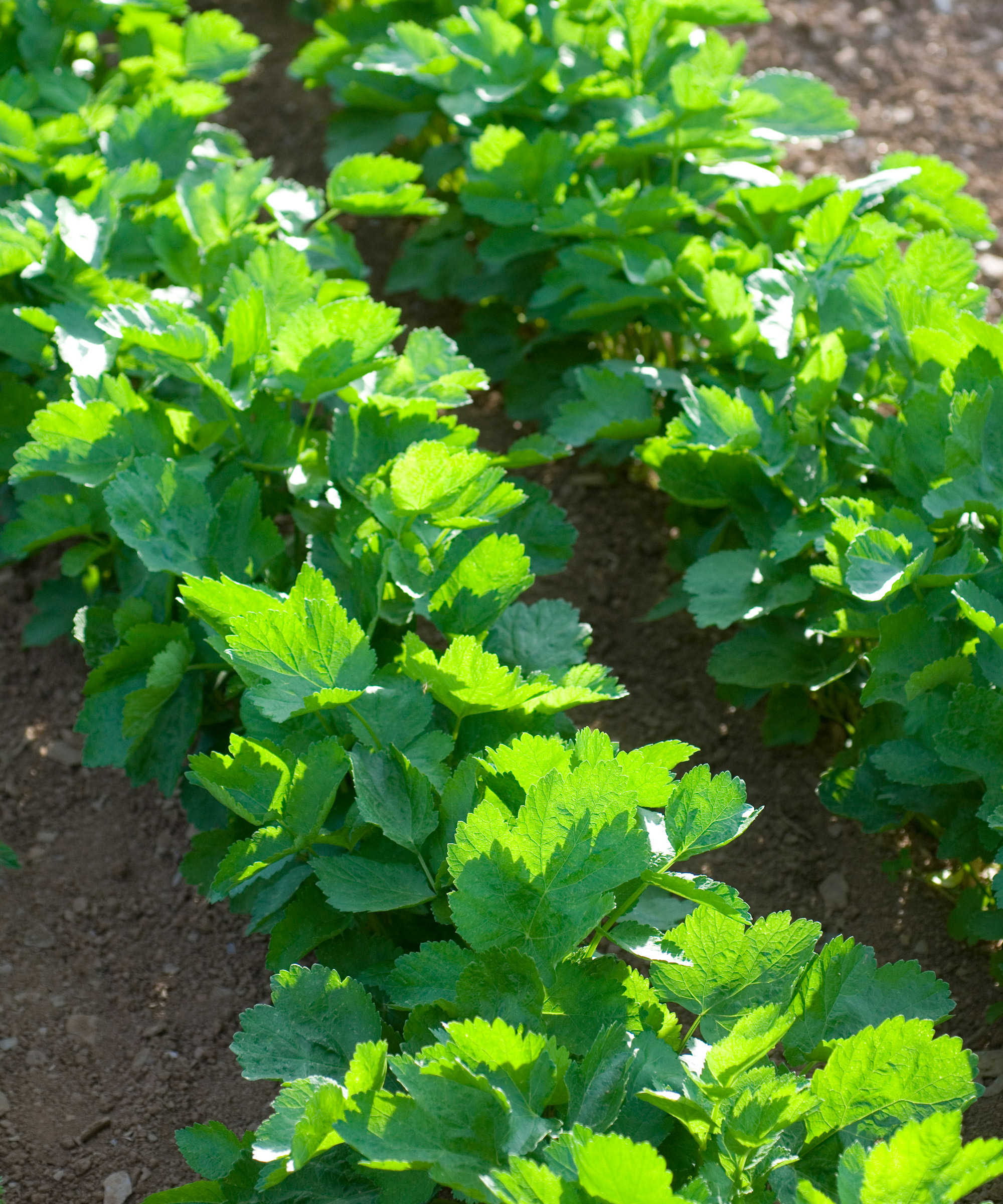
Parsnips are hardy vegetables that can remain in the ground all winter
The simplest bit of advice for if you want to overwinter vegetables is to make sure you choose the right plants. Do your research to select cold-hardy vegetables that are renowned for their cold tolerance and are fully suitable for growing during the winter in your US hardiness zone.
There are lots of vegetables that can thrive and provide a harvest during the winter and many actually see their flavor improve after a few frosts, as the cold weather turns the starches into sugars to make them taste sweeter.
2. Cut down on watering
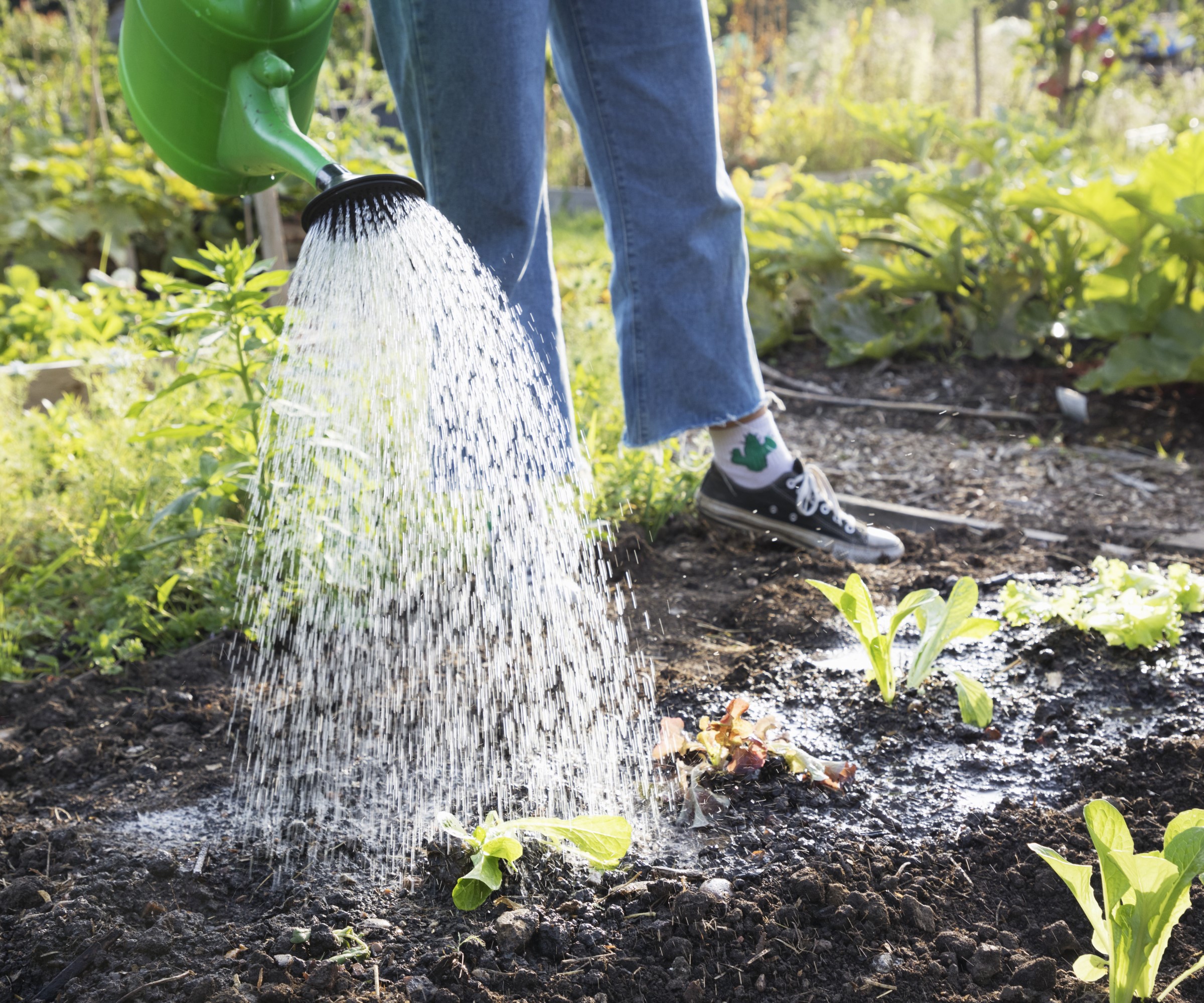
Try to always water the soil and not the leaves
Vegetables will not need watering during the winter months as much as they do in the summer and it would be a garden watering mistake to not adjust your watering practices.
It is likely that the rainfall in fall and winter will be enough to irrigate your crops, but continue to check regularly to gauge if and when to water plants. A soil moisture meter, such as the XLUX Long Probe Deep Soil Moisture Meter available on Amazon, would be beneficial to avoid over-saturating plants and causing them to rot in waterlogged conditions.
When it comes to how to water plants in winter, apply water deeply but sparingly and avoid soaking the foliage - as this can cause damage to the leaves if ice forms on the surface.
3. Utilize covers
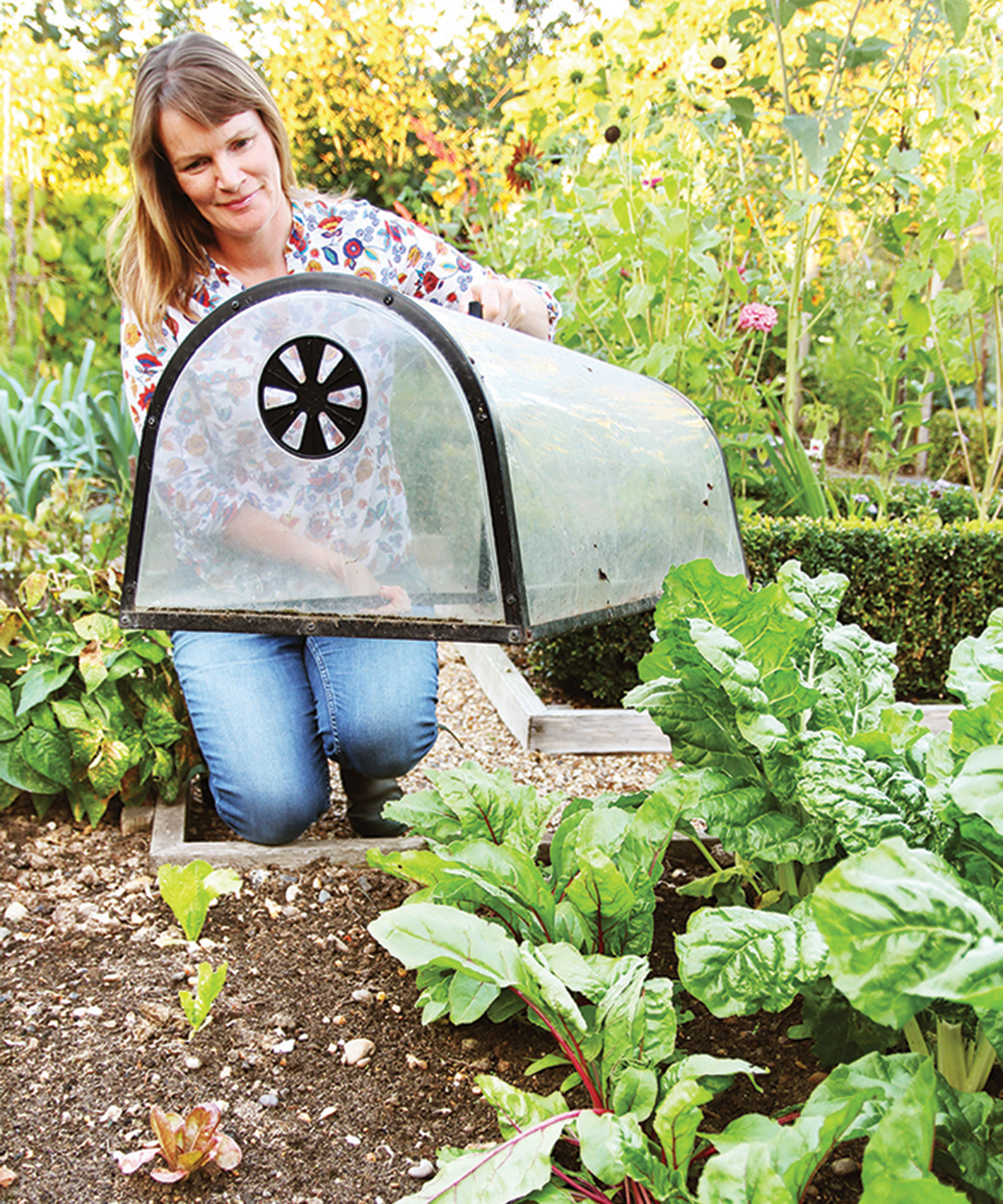
Cloches can provide extra winter protection to vegetables
While there are crops that can be brought indoors into a greenhouse to overwinter, such as if you want to overwinter tomato plants, those vegetables that can stay outside may still need some added protection.
Some vegetables will be fully hardy and can survive frosts, but the likes of winter lettuces, beets, or radishes can be a bit more susceptible to freezing conditions and giving them a bit of covering can prevent them being damaged.
Vegetables can be covered with row covers, mulch blankets, or cloches to provide extra insulation during freezing nights. A solid cloche such as the Tierra Kitchen Garden Cloche available at Walmart is a great option for protecting vegetable plants in winter.
Just remember to remove row covers or blankets during the day to allow lots of sunlight and air circulation to get to the plants.
4. Protect plants from winds
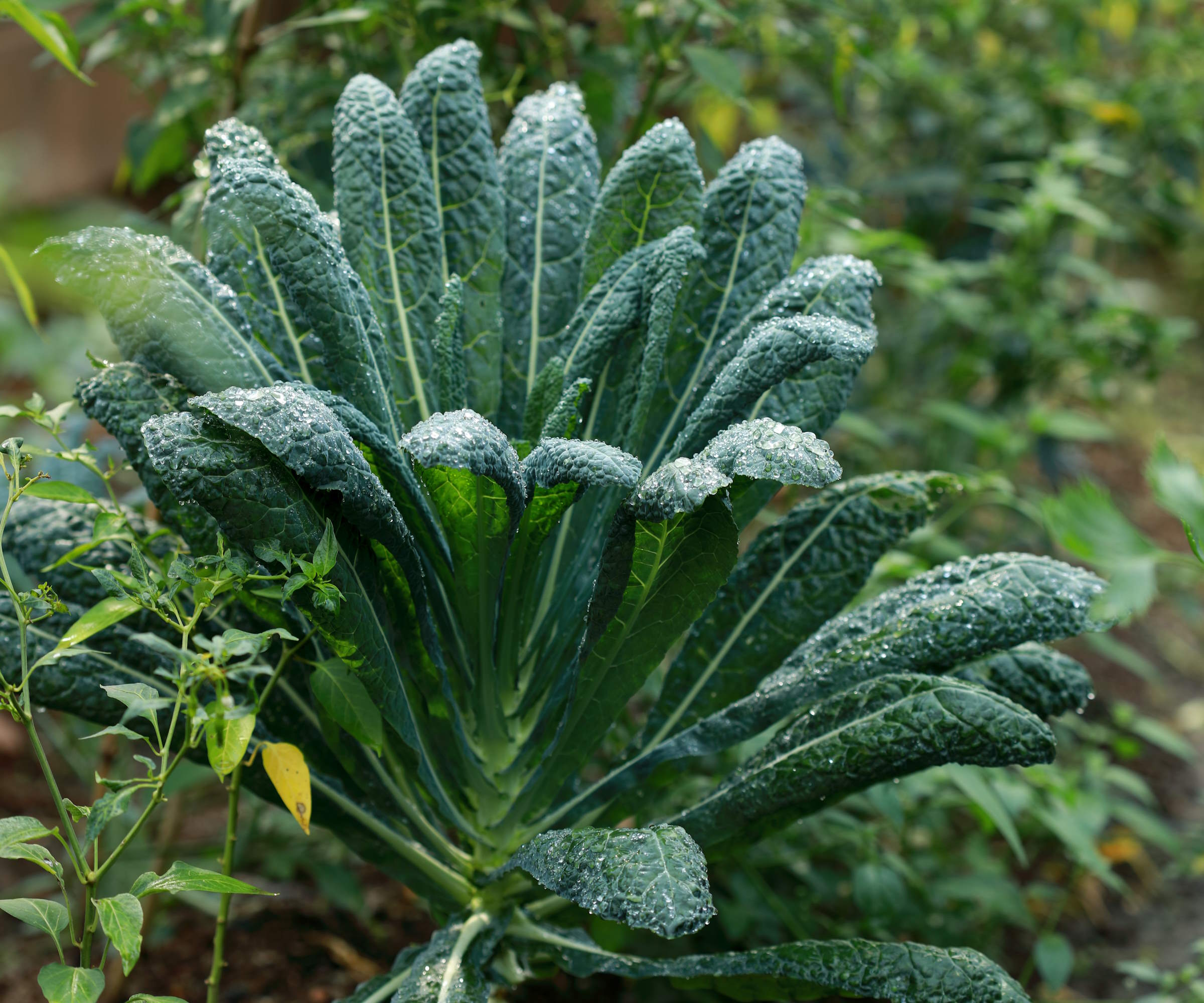
Cavolo nero grows very tall and can be damaged by high winds
It is not just the cold temperatures that have the potential to damage vegetables, but also the strong and cold winds of winter can be detrimental to the health of plants. Winds can scorch the leaves and freezing winds can be fatal in the worst-case scenario.
Strong gusts are also capable of completely uprooting plants. It may be beneficial to erect wind barriers to protect vegetables from damaging winds, especially taller vegetables with long stems such as kales and Brussels sprouts - which I have had toppled by strong winds in my years growing them.
5. Don't feed during winter
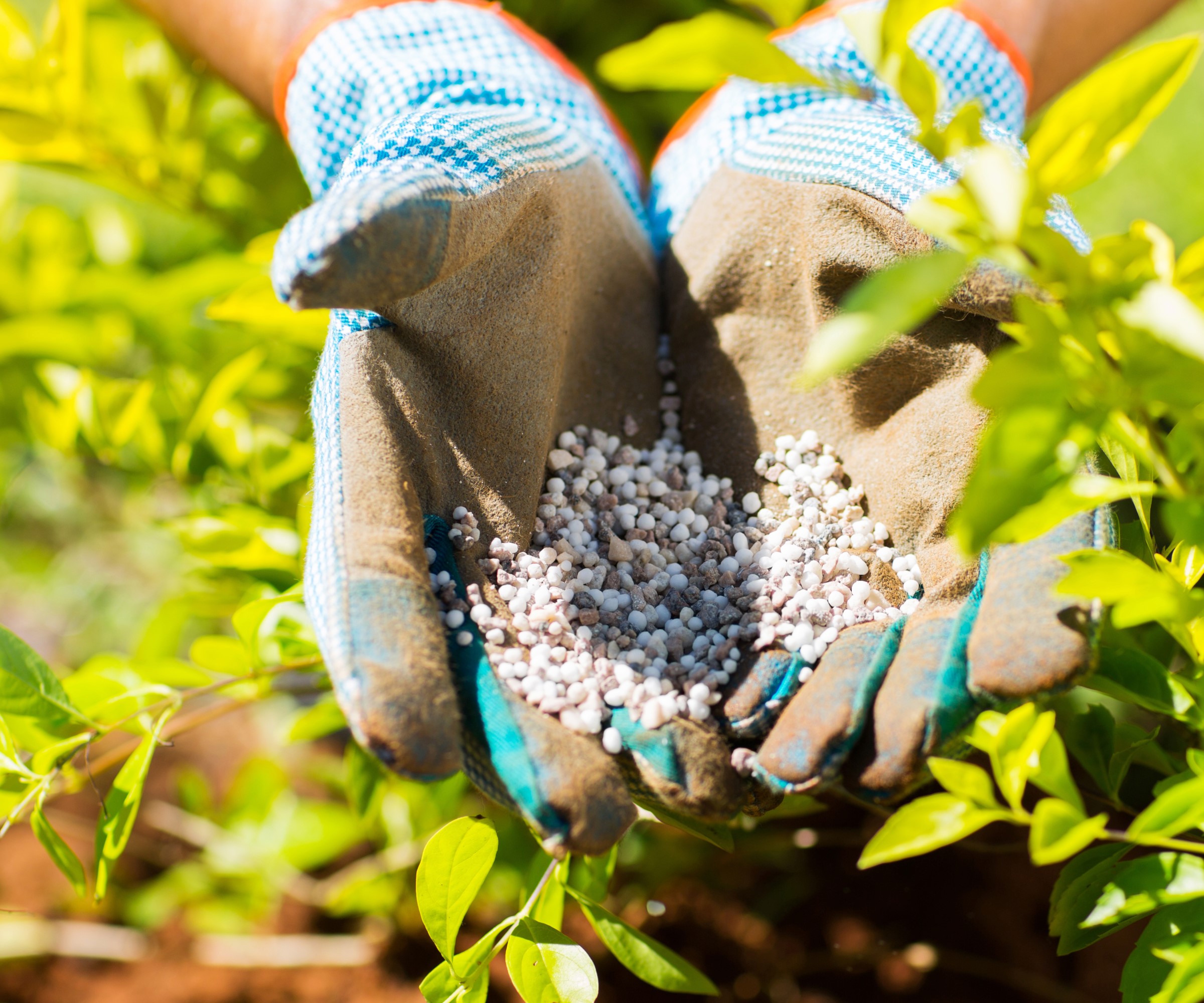
Feed a vegetable garden in spring and fall, rather than winter
There is little need for feeding plants outside during the winter months, as the low temperatures means that plants will not take up as much nutrients from the ground.
The most beneficial thing you can do is fertilize a vegetable garden in the fall. Adding lots of organic matter, such as compost or well-rotted manure, or feeding with a balanced slow-release fertilizer, such as the Miracle-Gro Shake 'N Feed Tomato, Fruit & Vegetable Plant Food available at Walmart, in fall will boost the nutrient levels in the soil and give plants all they need over the winter. Spring and fall are the best time to add fertilizers to a vegetable garden for healthy crops and big yields.
6. Mulch the soil
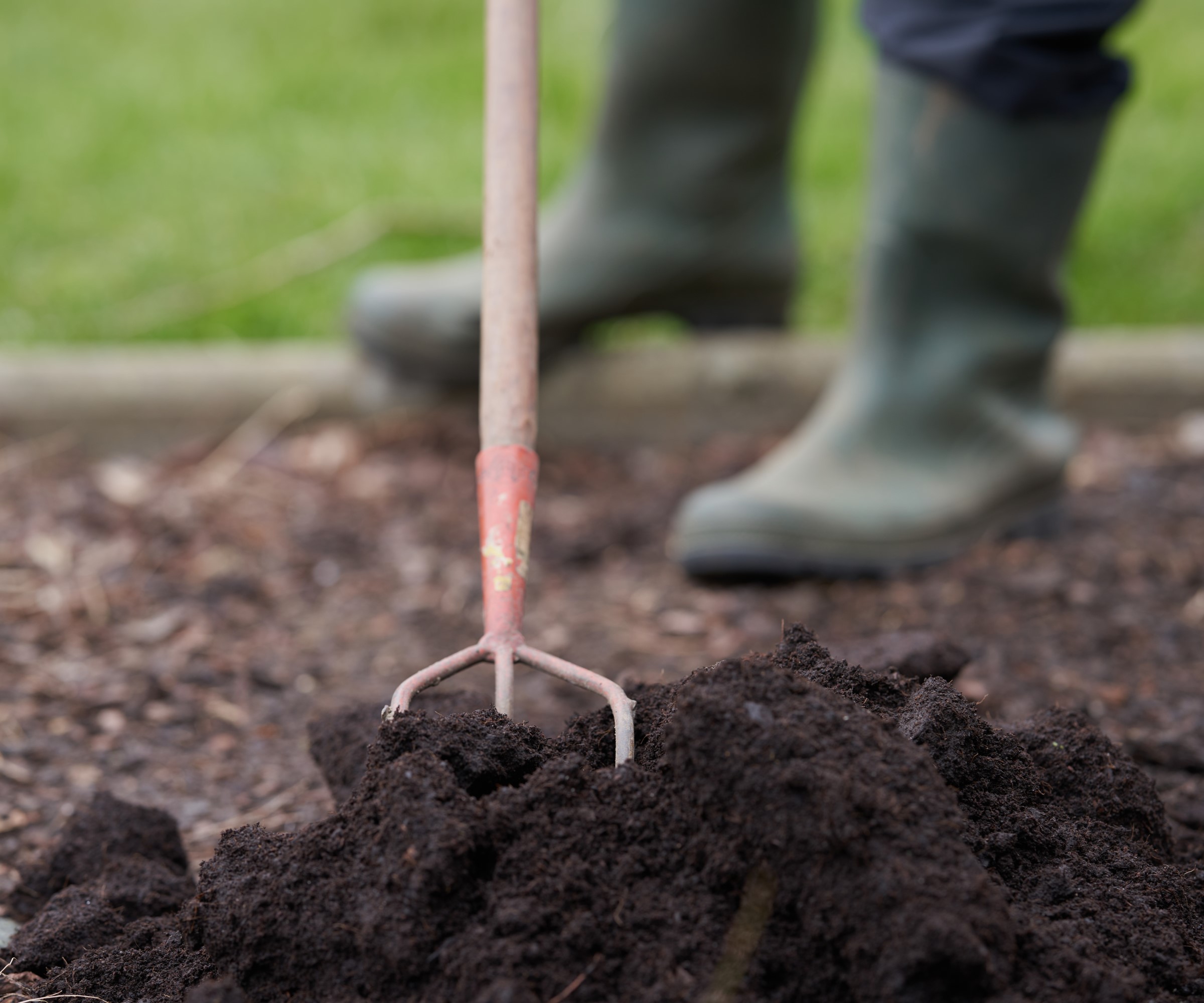
A thick layer of mulch helps to insulate the roots
Mulching the vegetable garden is always a great way to keep any soil type healthy by improving the structure, water-holding capacity, and nutrient levels. It is commonly used in no-dig gardening techniques but, in my view, mulching should be seen as an integral part of any annual gardening plan.
On top of the benefits outlined above, mulching also helps to regulate the soil temperature and provide a good layer of insulation to protect the plant's roots from freezing temperatures. Adding a good few inches of any mulching material, including compost, well-rotted manure, leaf mold, or straw, protects the roots from the cold winter weather, as well as suppressing weeds from germinating once the weather warms in spring.
There is another benefit to adding a layer of mulch to root vegetables, including carrots and parsnips. Not only does it stop the crop from being damaged by repeated freezing and thawing, but it keeps the soil from getting frozen and makes it much easier to harvest parsnips or harvest carrots from deep in the ground.
7. Remove dead vegetation
Keep a close eye on your vegetables, while there is less pest activity in winter the likes of slugs and snails may still be around and wanting to nibble on your crops. Monitor plants for any signs of pests and disease and remove any dying or dead vegetation.
FAQs
Can I leave my carrots in the ground over winter?
Carrots can be left in the soil to be harvested throughout winter, but will benefit from being covered by a layer of straw or leaves to protect them from the worst of the cold and make harvesting easier.
The carrot tops will die back in winter, but the roots will be fine sitting dormant in the ground until you harvest them. Lift them before spring, otherwise they will start growing again and start to flower.
Can I leave potatoes in the ground over winter?
It is not recommended to leave potatoes in the ground over winter. The above surface parts of the plant will be killed by frosts and the underground tubers are liable to rot in wet soil over winter.
Can parsnips stay in the ground over winter?
Parsnips are very hardy and can stay in the ground to be harvested throughout winter. Like with carrots, they do benefit from a mulching layer to make harvesting easier and, as they are a biennial plant, want to be harvested before they start growing and flowering in spring and become inedible.
It doesn’t matter if you have a large kitchen garden or are just wanting year-round homegrown harvests from a small vegetable garden, there are many crops available to choose that can provide tasty harvests for your household year-round.

Drew has worked as a writer since 2008 and was also a professional gardener for many years. As a trained horticulturist, he worked in prestigious historic gardens, including Hanbury Hall and the world-famous Hidcote Manor Garden. He also spent time as a specialist kitchen gardener at Soho Farmhouse and Netherby Hall, where he grew vegetables, fruit, herbs, and cut flowers for restaurants. Drew has written for numerous print and online publications and is an allotment holder and garden blogger. He is shortlisted for the Digital Gardening Writer of the Year at the 2025 Garden Media Guild Awards.